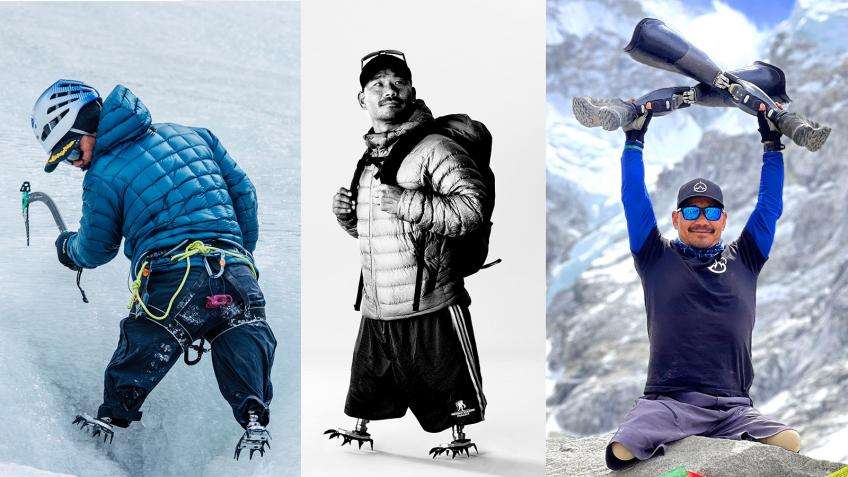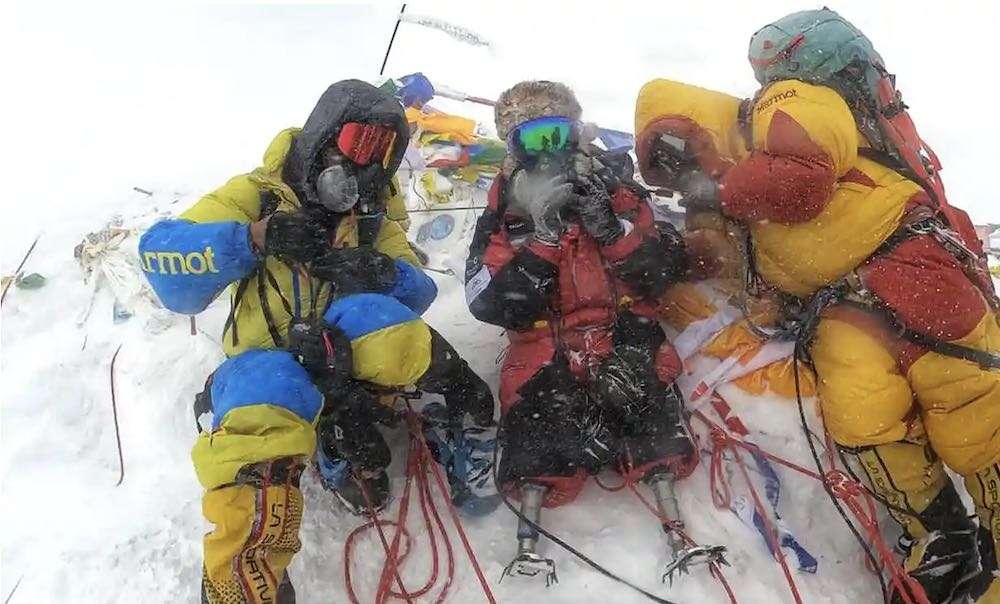Top 30 Ways Adults Pay Homage to Lost Loved Ones and Keep Their Memory Alive
A new poll has unveiled the top 30 modern ways we remember lost loved ones—including retelling their jokes, planting a tree, and tattoos.

A Nepali veteran of the British operations in Afghanistan has become the first double above-the-knee amputee to summit the world's tallest mountain.
Hari Budha Magar, who lives in Canterbury reached the top at 3 PM last Friday, having started the climb on April 17th—13 years to the day since he lost his legs in an IED explosion.
Anyone with knowledge of the history of warfare knows about the almost mythical bravery and exceptionalism of the Ghurkas. Hari is one of these people—Ghurka being a historical term for a Nepali warrior, and a modern legal term for a Nepali foreign fighter that isn't considered a mercenary under the Geneva Convention.
In the face of that legacy, Hari's accomplishment is perhaps to be expected, though he certainly didn't feel like that 13 years ago, battling alcoholism and depression.
"I grew up in Nepal, up to age of 19, and I saw how the disabled people were treated in those remote villages," he said. "Many people still think that disability is a sin of previous life and you are the burden of the earth. I believed this myself because that is what I saw. That is how I grew up."
He tried to kill himself a pair of times, but eventually decided to climb Everest instead. However, there was a legal summit to conquer in his native Nepal before he could tackle the Mountain So High No Bird Can Fly Over It.
Disabled people had been banned by the Nepali government from attempting the mountain. Enough people die on the journey every year, and the authorities saw no reason to risk that. But, Hari was able to overcome that roadblock and prepare for the real quest.
PA News was at Everest Base Camp after Budha Magar, supported by his all-Nepalese team, completed their descent from the peak.

"All of my jackets were completely freezing," he said. "It was all frozen. Even our warm water, we put hot water in the Thermos, and that was also frozen and we were not able to drink."
He used a variety of interchangeable prosthetics for the climb, which included some equipped with ice spikes, and others with mountaineering boots attached.
Completing the mission, Budha Magar says he wants to return to the spot in Afghanistan where he lost his legs in order to say ‘thank you' because if he still had his legs, he would never have climbed Everest.
SHARE This Inspiring Man's Journey From Rock Bottom To The Top Rock…
Be the first to comment